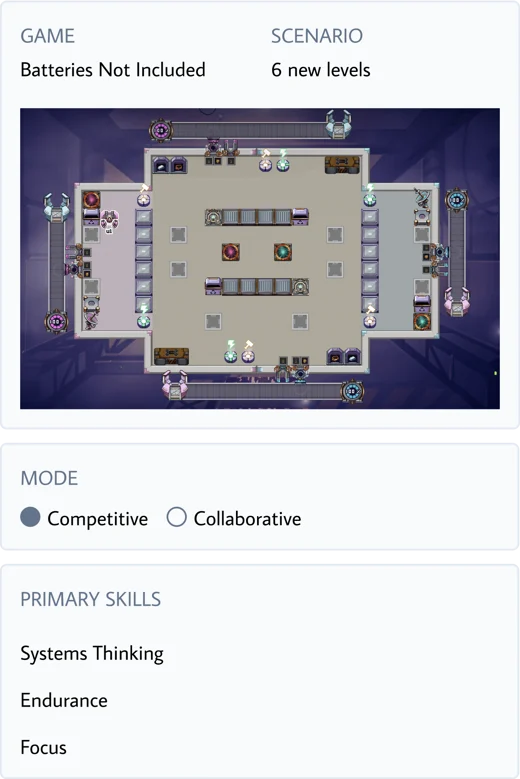导师 | Tutor
新课程 | New Lessons
加法第一 | First Addition
每个学生都学会如何将数字相加。但是加法究竟是什么呢?在这个关于加法的新概念介绍中,您的学生将在其最简单的形式下发展对数字底层运作的直观基础。通过套索捕捉月亮、收集星星,甚至赶群猫,这节课将消除有关这种数学运算的任何悬念。它可以在加法和减法单元中找到。
Every math student learns how to add numbers together. But what is addition, exactly? In this new conceptual introduction to addition, your student will develop an intuitive foundation of what is going on underneath the numbers in its simplest form. By lassoing moons, collecting stars, and even herding cats, this lesson will remove any lingering mystery about this mathematical operation we call addition. It can be found in the Addition and Subtraction unit.
扩展斑点 | Expanding Splodges
看待一个数字有不止一种方式。我们可以将数字视为数字序列,这是我们通常的写法。或者我们可以将数字视为不同大小部分的集合,这通常对于进行更高级别或应用数学是有利的。在《扩展斑点》中,您的学生将使用导师的斑点发明以展开形式构建数字,为他们对数字和位值的理解增添深度。您可以在数字和位值单元中找到这堂课。
There is more than one way to look at a number. We can see a number as a sequence of digits, which is how we usually write them. Or we can see a number as a collection of parts of different sizes, which is often advantageous for doing higher-level or applied math. In Expanding Splodges, your student will use the Tutor’s invention of splodges to build numbers in expanded form, adding depth to their understanding of numbers and place value. You can find this lesson in the Numbers and Place Value unit.
缩小大、增长小 | Shrink Big, Grow Small
分数有多深入?无穷大和无穷小之间有什么关系?在这堂课中,您的学生将在探讨指数增长和无限大的大(和小)概念时巩固他们对分数的基本理解。不破不立,拿起你的锤子,打破固有的定式吧。这堂课可以在分数单元中找到。
How deep do fractions go? What is the relationship between the infinite and the infinitesimal? In this lesson, your student will solidify their basic understanding of fractions while exploring the big (and small) concepts of exponential growth and infinity. Grab your hammer, there is a lot of smashing to do. This lesson can be found in the Fractions unit.
游戏 | Play
电池未含 | Batteries Not Included
详情 | Details
在上周与超级计算机竞争之后,我们的综合团队转向下一个挑战:与其他综合团队竞争。
After competing against a supercomputer last week, our Synthesis teams turn to the next challenge: other Synthesis teams.
在《未装电池》中,两支队伍都创建一个工作系统,两支队伍都试图通过优化他们的系统获得优势,并且两支队伍都试图通过保持比对方更长时间的专注来获胜。但这并不容易。随着地图的进展,可用空间将会减少(甚至共享空间),因此小决定将产生重大后果。
In Batteries Not Included, both teams create a working system, both teams try to gain an edge by optimizing their system, and both teams try to win by keeping their focus longer than the other team. But it won’t be easy. As the maps progress, there will be less space (and even shared space), so small decisions will have big consequences.

游戏:电池未含
场景:6个新关
模式:🟢竞争 ⚪合作
主要技能:
系统思维
耐力
专注
GAME: Batteries Not Included
SCENARIO: 6 scenarios
MODE: 🟢Competitive ⚪Collaborative
PRIMARY SKILLS:
Systems Thinking
Endurance
Focus
反思 | Post-play
以下是一些后续反思问题,如果您希望与您的孩子讨论这次经历的话。
Here are some follow-up reflection questions, in case you’d like to discuss the experience with your child.
- 协作模式和竞争模式之间的主要区别是什么?
What’s the main difference between collaborative mode and competitive mode? - 哪张地图对您的团队提出了最大的挑战?为什么?
What map presented the hardest challenge for your team? Why?
讨论 | Discussions
没有货币的世界 |
A World Without Money
想象一个未来,货币已经过时,人类与人工智能一起工作,收入是有保障的。这个未来是向前迈出的积极一步,还是一个错误?
Imagine a future where money is obsolete, humans work alongside AI, and income is guaranteed. Is this future a positive step forward … or is it a mistake?
本周的主题邀请学生探讨潜在的经济变化,并讨论对工作、价值和社会公平的影响。这里没有对错之分,只有与来自世界各地其他孩子的有趣对话。
This week’s topic invites students to explore potential economic shifts and discuss the impacts on work, value, and social equity. There are no right or wrong answers here, just interesting conversations with other kids from around the world.

